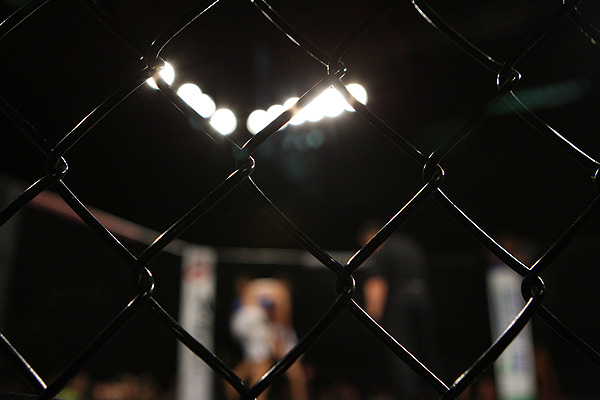Fistic Medicine: HGH Testing

The names on the lips of those interested in the science of MMA in the last month were not Penn and Diaz, but Issa and Newton. Darryl Issa is one of the Congressmen demanding the National Football League initiate testing for Human Growth Hormone this season. Terry Newton is the British rugby player who, in November 2009, became the first professional athlete ever to test positive for illegal use of HGH.
Congressman Issa’s crusade should be of interest to MMA fans because the NFL leads the way in many issues that affect combat sports: testing for performance-enhancing drugs, healthcare, brain injury, etc. Whatever happens in that arena will inevitably trickle down into renewed interest in HGH testing for MMA.
Advertisement
There are two primary problems with the current HGH testing scheme the World Anti-Doping Agency is urging on the NFL and state athletic commissions. The first is that a blood sample is required -- HGH exists in the blood at a hundred times greater concentration than in urine. The challenge and invasiveness of obtaining and handling samples is vastly greater for blood than for urine testing, which is the athletic commission standard. More problematic is the very short half-life of HGH in the body: about 2.5 hours. A day after injecting HGH, serum levels are 0.1 percent of the injection dose, and a week after using HGH, the drug is completely gone from the system.
The WADA test is, in effect, not an HGH test, but an I.Q. test --
catching only those who cannot figure out how simple it is to
evade. When Newton admitted to HGH use, he stated: “I have made a
grave error of judgment in taking a banned substance and hope that,
if nothing else, my stupidity will be a warning to any other
professional in any sport of the consequences of doing so.” Surely,
some athletes reacted to the first phrase, reconsidering their own
use of HGH, but just as surely, others heard only the last phrase
and recommitted themselves to not being “stupid” and needlessly
getting caught.
WADA’s answer to the limitations of their HGH test is to utilize “intelligence” and out-of-competition testing; “intelligence” in the espionage sense of the word, as in secret information about an athlete’s HGH usage: anonymous tips from disgruntled ex-girlfriends, reports from poorly compensated training partners, confessions from doctors implicated in drug dealing. Out-of-competition testing requires athletes to register their whereabouts with WADA and make themselves available on short notice for testing. One can imagine an athlete’s distaste at being subjected to a system where any confidante is a potential informer and in which registration regulations can be stricter than those for sex offenders.
These are legitimate issues, as is the cost -- an estimated $80,000 for a fighter’s training camp. The most anticipated boxing match of the past decade fell apart over differences in how fighters viewed WADA testing protocols. Floyd Mayweather Jr. judged the cost and invasiveness of testing worth the benefits. Manny Pacquiao did not.
WADA’s best answer for the critics of HGH testing lies in the future. The organization has spent millions developing a test it hopes will detect the drug, not one or two days after use but as much as three weeks out. Somewhere down the line, WADA hopes for cheap, easy urine tests. The promise of these future advancements has been enough to convince Congressmen Issa, but not the NFL Players Union or athletic commission heads like Nevada State Athletic Commission Executive Director Keith Kizer.
“[On] HGH blood test, they’ve done thousands of tests and they’ve only caught one guy,” Kizer stated in May 2010, when the Nevada commission last considered HGH testing. “Either he is the only guy doing HGH or there are a lot of false negatives.”
The question men like Kizer are asking but which WADA is not required to consider is will HGH testing help fighters and not merely “purify” the sport? Is it right to subject hundreds, if not thousands, of fighters to the disadvantages of testing if only one in a hundred or one in a thousand cheaters will actually be caught?
Those of us who are advocates of aggressive drug testing in sports have a tendency to ignore or minimize the human costs of testing. We focus on the dangers of drug use, on the risk of PEDs filtering down from the professional ranks into the lives and bodies of high school athletes, on the purity of sport. However, the human costs of testing are far from trivial. After failing an HGH test that he quite likely could have effectively contested in court, Newton lost his job and ended a successful career. Seven months after being sanctioned, he walked into the garage in which he had injected himself with HGH for years and hanged himself. He was 31.
At the very least, a better test is deserved by everyone.
Matt Pitt is a physician with degrees in biophysics and medicine. He is board-certified in emergency medicine and has post-graduate training in head injuries and multi-system trauma. To ask a question that could be answered in a future article, e-mail him at [email protected].







